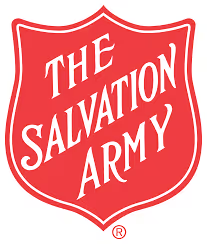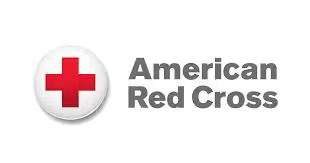






5-Star Valuation Services, Loved by Hundreds
Defensible appraisals for any legal or tax need.
Rather than relying on a single lead appraiser or fixed team, we maintain an extensive network of credentialed specialists, each with deep expertise in particular asset types and valuation purposes. This enables us to match every engagement with the right expert while delivering exceptionally fast turnaround times, even under the most demanding deadlines.
When you require a defensible appraisal you can trust, AppraiseItNow delivers.


Easy & Fast Online Appraisal Process
Our unique model allows us to meet super tight deadlines for tax filings, court dates, internal company project timelines.

Industry-Leading Appraisal Speed
Our unique business model means that we always have a credentialed appraiser available to work on your project, and we can meet obscure and short deadlines for tax filings, court submissions, internal projects, and more. Even if that means preparing your appraisal within 24 hours!

Any Asset Covered
This means that we can appraise any type of item including furniture, artwork, jewelry, business inventory, machinery & equipment, cars, boats, and more!

Servicing Enterprises & Individuals
Our company services anyone from an individual with a single couch to an enterprise needing contents of multiple offices or warehouses appraised.

Defensible for Any Purpose
Frequently Asked
Questions
No Frequently Asked Questions Found.
These donations can take multiple forms, ranging from direct cash contributions to complex asset transfers. Monetary gifts are the most straightforward, typically involving cash, checks, or electronic transfers. However, donors can also contribute non-cash items like clothing, vehicles, securities, and even real estate.
Beyond financial support, charitable donations serve a critical role in addressing societal challenges. They provide essential funding for organizations working in areas such as education, healthcare, environmental conservation, and social justice. By contributing, donors become active participants in creating positive community change, supporting initiatives that might otherwise struggle to secure necessary resources.
The impact of charitable giving extends far beyond immediate financial support. These contributions help nonprofit organizations sustain their operations, develop innovative programs, and expand their reach to serve more individuals and communities in need. Moreover, donations foster a sense of collective responsibility and interconnectedness, demonstrating how individual actions can contribute to broader social progress.
For donors, charitable contributions offer potential tax advantages. Many jurisdictions allow tax deductions for gifts to qualified nonprofit organizations, which can help reduce overall tax liability. However, donors should maintain detailed documentation and, for significant non-cash donations, obtain professional appraisals to ensure proper valuation and tax compliance.
Ultimately, charitable donation represents a meaningful intersection of personal values, social responsibility, and practical financial strategy. Whether through monetary gifts, professional services, or tangible assets, each contribution has the potential to create meaningful, lasting impact.
From a tax perspective, the IRS mandates a qualified appraisal for non-cash contributions exceeding $5,000. This requirement isn't just bureaucratic red tape—it's a formal mechanism ensuring donors can accurately document and substantiate their charitable gifts. Proper documentation protects donors during potential tax reviews and helps maximize potential tax deductions.
Accurate valuation goes far beyond financial benefits. A professional appraisal introduces transparency and credibility to the donation process. Charitable organizations rely on precise documentation to validate contributions, demonstrate impact, and maintain financial accountability. When donors provide comprehensive appraisals, they empower nonprofits to more effectively communicate the tangible value of philanthropic support.
The expertise of a qualified appraiser cannot be overstated. These professionals understand nuanced market conditions, item-specific valuation methodologies, and current regulatory standards. Their specialized knowledge ensures donors receive a comprehensive, defensible assessment that reflects the true worth of their contribution.
Different types of donations—whether artwork, real estate, vehicles, or collectibles—require specific evaluation approaches. A professional appraiser brings specialized knowledge to assess each item's unique characteristics, historical context, and current market dynamics. This meticulous approach guarantees a fair, accurate representation of the donation's value.
By investing in a professional appraisal, donors transform their generosity into a strategic, well-documented contribution that benefits both the charitable organization and their personal financial planning.
Expert appraisers meticulously investigate multiple dimensions of a garment, including its provenance, craftsmanship, condition, and market positioning. Each piece undergoes rigorous scrutiny, where details such as fabric quality, brand reputation, historical significance, and current fashion trends are carefully weighed.
The valuation process requires deep expertise in textile history, fashion industry dynamics, and market economics. Professionals utilize specialized knowledge to differentiate between standard items and truly exceptional pieces that may hold significant financial or collector's value.
Critical elements driving an appraisal include the item's brand prestige, physical condition, authenticity, rarity, and current market demand. A vintage designer dress from a renowned fashion house, for instance, might command substantially different valuation compared to a mass-produced contemporary garment.
This nuanced assessment provides critical insights for diverse purposes—from insurance documentation and estate planning to potential resale strategies. By offering an objective, professional perspective, clothing appraisals help individuals understand the genuine value of their textile assets with precision and credibility.
The ultimate goal of a clothing appraisal is to deliver a comprehensive, evidence-based valuation that reflects the item's true worth within the current marketplace, ensuring owners have accurate, reliable information about their clothing's financial standing.
The process typically involves submitting high-resolution photographs and comprehensive item descriptions through digital platforms. Clients can capture detailed images that showcase the clothing's condition, unique features, brand markings, and any distinguishing characteristics that might impact its value. Professional appraisers carefully analyze these submissions, leveraging their expertise to provide accurate and nuanced assessments.
Advanced digital appraisal techniques now include live video consultations, enabling real-time interaction between the appraiser and client. These interactive sessions allow for immediate clarification, close-up examination, and comprehensive discussion of the item's specific attributes. Video platforms like Zoom or Skype facilitate a thorough evaluation that closely mimics an in-person appraisal.
Online appraisals are particularly beneficial for individuals with limited mobility, busy schedules, or those located in areas with restricted access to specialized appraisal services. The digital approach expands clients' ability to connect with experts who possess deep knowledge of clothing valuation, including vintage, designer, and niche textile markets.
Professional appraisers evaluate multiple factors during these virtual assessments, including fabric quality, brand reputation, historical significance, condition, and current market trends. This comprehensive approach ensures a detailed and accurate valuation that goes beyond surface-level examination.
Whether for insurance documentation, estate planning, resale preparation, or personal knowledge, online clothing appraisals provide a flexible and professional solution for understanding the true value of textile collections.
Fashion appraisers excel in high-end designer clothing, leveraging deep understanding of luxury brands, historical design contexts, and contemporary market trends. Their expertise enables accurate assessment of premium garments from renowned fashion houses and limited-edition collections.
Vintage clothing experts focus on garments aged 20-30 years, meticulously evaluating historical pieces through detailed condition analysis, rarity assessment, and market demand understanding. Their skills distinguish authentic vintage items from modern reproductions, providing critical valuation insights.
Costume appraisers specialize in performance-related clothing, examining theatrical, film, and television wardrobe pieces. Their evaluations extend beyond monetary value, encompassing cultural significance, production history, and potential connections to notable performers or designers.
Sports apparel specialists concentrate on athletic clothing and memorabilia, understanding intricate market dynamics surrounding professional sports merchandise. Their assessments consider player associations, historical moments, and authentication processes for high-value collectible items.
Textile appraisers adopt a broader perspective, evaluating fabric composition, material quality, and historical relevance across clothing categories. Their comprehensive approach allows nuanced assessments of garments based on textile characteristics and manufacturing techniques.
General clothing appraisers offer versatile valuation services across diverse clothing segments, applying comprehensive market knowledge to assess items based on brand reputation, condition, quality, and current trends.
This professional diversity ensures individuals and organizations can access specialized expertise matching their specific clothing valuation requirements.
From an insurance perspective, an accurate appraisal ensures proper coverage for valuable clothing items. Without a precise valuation, individuals risk significant financial loss if items are damaged, stolen, or lost. Insurance providers often require detailed documentation to determine appropriate compensation, making professional appraisals an essential protective measure.
Tax considerations represent another key reason for obtaining a clothing appraisal. When donating garments with substantial value, a formal appraisal becomes crucial for claiming legitimate tax deductions. The IRS mandates professional documentation for donations exceeding specific thresholds, transforming an appraisal into a potential financial advantage.
Estate planning represents a nuanced area where clothing appraisals prove particularly valuable. During the complex process of settling an estate, precise valuations help ensure equitable distribution among heirs and provide clear documentation of personal property values. This can prevent potential disputes and streamline the inheritance process.
For collectors and fashion enthusiasts with high-end or vintage pieces, appraisals offer insight into current market values. Whether considering resale, documenting a collection's worth, or understanding potential investment potential, a professional assessment provides authoritative and current information about a garment's financial standing.
Ultimately, clothing appraisals transcend simple price tags. They represent a sophisticated approach to understanding, protecting, and strategically managing valuable textile assets across personal, financial, and legal landscapes.
Understanding Clothing Appraisals: An Overview
Clothing appraisals for charitable donation are important processes that help determine the fair market value of garments being donated. This valuation is crucial for both donors and charitable organizations, as it ensures that donors can accurately report their contributions for tax purposes and that charities can effectively manage and allocate donations. A qualified appraiser evaluates the items based on factors such as brand, condition, age, and market demand, providing a comprehensive assessment that reflects current market trends.
Understanding the intricacies of clothing appraisals can enhance the donation experience, making it more beneficial for both parties involved. As tax regulations require donors to substantiate the value of their contributions, obtaining a formal appraisal can serve as crucial documentation, potentially maximizing tax deductions. Additionally, charities often rely on these appraisals to gauge the value of their inventory, which informs pricing strategies in thrift stores or resale events, ultimately supporting their mission and outreach efforts.
The Importance of Appraising Clothing for Donations
When making charitable donations, especially with clothing, accurate appraisals play a critical role in ensuring that both the donor and the receiving organization benefit fairly from the transaction. An appraisal helps establish the fair market value of the clothing being donated, which is essential for tax deduction purposes. Without an accurate assessment, donors may either undervalue their contributions or miss out on potential deductions, complicating their financial situations come tax season.
Moreover, having clothing appraised not only supports donor transparency but also contributes to responsible charity practices. Appraisals ensure that charitable organizations accept items that are truly valuable, helping them maintain their integrity and effectively allocate resources. This process not only strengthens the relationship between donors and charities but also encourages a culture of giving that is grounded in fairness and accountability.
Key Factors That Affect the Value of Donated Clothing
When appraising clothing for charitable donation, several key factors can significantly influence its value. Firstly, the brand and designer of the clothing can play a crucial role; high-end and well-regarded brands typically garner a higher appraisal value compared to mass-produced items. Additionally, the condition of the clothing is paramount; items that are in excellent condition, free from stains, wear, or visible damage, will be appraised more favorably than those that show signs of significant use.
Another important factor is the relevance of the clothing to current fashion trends and market demand. Seasonal items, such as winter coats or summer dresses, may vary in value depending on the time of year, while iconic pieces from notable designers may retain value or even appreciate over time. Lastly, uniqueness can enhance value; rare or limited-edition items often attract collectors and fashion enthusiasts, making them more desirable and potentially increasing their appraisal value.
When to Consider Getting a Clothing Appraisal
Clothing appraisals are particularly valuable when items are being donated to charities, especially for tax deduction purposes. The IRS allows taxpayers to deduct the fair market value of clothing donations; however, providing substantiation through a professional appraisal can bolster your claim. This is especially pertinent if the apparel in question includes designer pieces, vintage items, or collectibles, as these items can carry significant value that may exceed common donation thresholds.
Additionally, if you are planning to make a substantial donation, understanding the value of your clothing can aid in itemizing your contributions accurately. An appraisal not only offers a clear financial picture but can also ease the process for both the donor and the charity receiving the items. In situations where the clothing has historical, cultural, or artistic significance, an expert appraisal provides insight into its provenance and can enhance its value, making the donation not only beneficial for tax purposes but also meaningful in terms of supporting charitable endeavors.
How to Choose a Qualified Appraiser for Clothing Items
Choosing a qualified appraiser for clothing items intended for charitable donation is essential to accurately assess their value. Start by looking for appraisers who have specific credentials and experience in fashion and textiles. Organizations such as the International Society of Appraisers and the American Society of Appraisers can provide directories of certified professionals. Additionally, consider appraisers with a background in retail or fashion history, as they will be more familiar with the nuances of clothing valuation.
Engaging an appraiser who understands both the market trends and the intricacies of garment construction can significantly enhance the accuracy of your appraisal. It's also beneficial to check reviews or testimonials from previous clients to gauge their reputation and reliability. Finally, ensure that the appraiser is well-versed in the regulations surrounding charitable donations, as proper documentation may be necessary for tax deductions. A qualified appraiser not only adds credibility to your donation but can also maximize its potential financial impact.
The Clothing Appraisal Process Explained
The clothing appraisal process for charitable donation is a systematic approach to determining the fair market value of garments intended for donation. Typically, this process begins with gathering detailed information about the clothing items, including their condition, brand, age, and any distinguishing characteristics. Appraisers often rely on recent market trends and comparable sales to establish a valuation that reflects the item’s worth in today’s market. This evaluation is crucial for ensuring both donors and charitable organizations comply with IRS regulations surrounding tax deductions.
Once the relevant information is collected, a qualified appraiser will conduct a thorough examination of the clothing items. They may assess factors such as fabric type, designer labels, and authenticity, which can significantly influence value. The appraiser then compiles a written report outlining the findings and the rationale for the assigned values, which can be used by the donor when claiming tax deductions. Understanding this process not only aids in maximizing the benefits of charitable donations but also enhances the transparency and legitimacy of the appraisal itself.
Documentation Needed for Clothing Appraisals
When preparing for a clothing appraisal, it is essential to gather specific documentation that will aid in determining the value of your garments. This may include purchase receipts, original retail price tags, and any relevant certificates of authenticity for designer items. Providing proof of ownership not only establishes the credibility of your items but also helps appraisers assess their condition and market value more accurately.
In addition to purchase documentation, appraisers often benefit from detailed descriptions and high-quality photographs of the clothing items being appraised. Note any special features, unique patterns, or specific care instructions that may enhance the item’s value. This visual and descriptive information allows appraisers to understand better the nuances of each piece, ensuring a more precise valuation during the appraisal process.
Lastly, it is helpful to compile information regarding the item's history, including any alterations, previous ownership, or relevant provenance. Items that come with a rich backstory or were owned by notable individuals can carry higher appraised values. By providing comprehensive documentation, you not only facilitate a smoother appraisal process but also empower the appraiser with the necessary context to determine an accurate value for your clothing items.
Common Misconceptions About Clothing Donations and Appraisals
One common misconception about clothing donations is that all donated items are automatically considered to have significant value. Many individuals believe that the age or brand of a piece guarantees high appraisal values. However, the real value of donated clothing is determined by condition, market demand, and comparable sales in the resale market. Therefore, it is crucial for donors to understand that simply donating an item does not equate to receiving a substantial tax deduction without proper appraisal documentation.
Another misunderstanding lies in the appraisal process itself. Some donors think that assessing clothing value is a straightforward task, often overlooking the need for professional expertise. Appraisals require an acute understanding of fashion trends, material quality, and historical significance when relevant. By consulting qualified appraisers, donors can ensure a more accurate valuation that aligns with IRS requirements, thus optimizing their potential tax benefits for charitable contributions.
Tax Deductions and Clothing Donations: What You Need to Know
When it comes to charitable donations, clothing can be one of the most common items offered, yet many donors overlook the importance of accurate appraisals. To maximize tax deductions, it's crucial to understand the fair market value of the items being donated. The IRS allows taxpayers to deduct the value of donated clothing based on its condition, often requiring documentation or an appraisal for items valued over a certain threshold. Taking the time to assess the fair market value can lead to substantial savings during tax season.
Clothing appraisals serve a practical purpose, particularly when valuable or brand-name items are involved. Professional appraisers use specific criteria to determine the worth of clothing donations, considering factors such as brand, age, condition, and current market demand. This meticulous evaluation helps ensure that donors are receiving accurate tax deductions while supporting charitable organizations that rely on these contributions to do their work. Understanding the appraisal process not only enhances the donor's experience but also promotes ethical giving practices.
For those considering clothing donations, being aware of IRS guidelines can simplify the appraisal process. Donors should keep detailed records, including photographs, purchase receipts, and any related documentation to assist with their appraisal. Certain non-profit organizations may also provide donation valued guides, yet having a third-party appraiser brings an added layer of assurance and impartiality. In doing so, donors can confidently claim their deductions, foster goodwill in their communities, and make a positive impact without the fear of facing potential tax discrepancies.
Different Types of clothing Appraisals: A Detailed Look
Clothing appraisals can vary significantly based on the purpose they serve, particularly when evaluating items for charitable donations. Generally, there are two primary types of appraisals: wholesale and retail. Wholesale appraisals estimate the value of clothing items based on what a reseller might pay, while retail appraisals provide an estimate based on the selling price that a consumer would expect in a retail setting. Understanding these distinctions is crucial for both donors and charitable organizations to accurately assess the true value of the donated clothing.
Another important aspect of clothing appraisals is the consideration of quality and condition. Appraisers assess various factors, including the fabric type, brand reputation, and overall wear and tear of the items. Vintage and designer pieces might hold significantly higher value due to their brand desirability and historical significance. Thus, a detailed appraisal not only aids in fair tax deductions but also ensures that the receiving organization can maximize the benefit from the donations received.
Best Practices for Donating Appraised Clothing
When considering donating appraised clothing, it's essential to keep thorough documentation of the appraisal process. This includes retaining a copy of the appraisal report along with photographs of the items, which can help substantiate the value of the donation for tax purposes. Having a clear record demonstrates due diligence and can streamline the process when filing taxes, ensuring you maximize potential deductions while also supporting your chosen charity.
Selecting the right charitable organization for your clothing donation is equally important. Research organizations to confirm they accept clothing donations and assess their alignment with your values or causes you wish to support. Some charities may have specific requirements regarding the types of clothing they accept, so it’s advisable to check ahead and consider reaching out for guidance if needed.
Finally, understanding the timing and method of donation can enhance your experience. For instance, scheduling a pickup for large collections or visiting donation centers during off-peak hours can make the process more convenient. By approaching the donation with organization and care, you not only facilitate a more efficient transaction but also ensure that your donation has the greatest impact on recipients in need.
Conclusion: Maximizing Your Charitable Impact Through Proper Appraisals
Maximizing your charitable impact through proper appraisals requires a clear understanding of how clothing appraisals function within the context of charitable donations. When donating clothing, it's essential to recognize that the IRS allows taxpayers to claim a charitable deduction based on the fair market value of the items donated. An accurate appraisal helps establish this value, ensuring that your contributions are not only meaningful to the recipient organization but also maximized for potential tax benefits.
Engaging a qualified appraiser can provide you with an objective assessment of your clothing's market value, taking into account factors such as brand, condition, and current market trends. This professional evaluation is particularly important for higher-value items or collections, where the potential tax deduction can be substantial. Moreover, it helps maintain compliance with IRS guidelines, reducing the risk of complications during any future audits or inquiries regarding your claimed deductions.
In conclusion, taking the time to properly appraise your clothing donations can lead to greater benefits for both you and the charities you support. By understanding the appraisal process and leveraging expert insights, you ensure that your charitable contributions are valued accurately and impactful for those in need. Ultimately, this approach not only enhances your philanthropic efforts but also reinforces the importance of responsible giving in today's community landscape.
View all Locations
APPRAISEITNOW APPRAISERS ARE BEST-IN-CLASS & CREDENTIALED BY LEADING APPRAISAL ORGANIZATIONS LIKE THE ISA, ASA, & MORE.






.svg)








